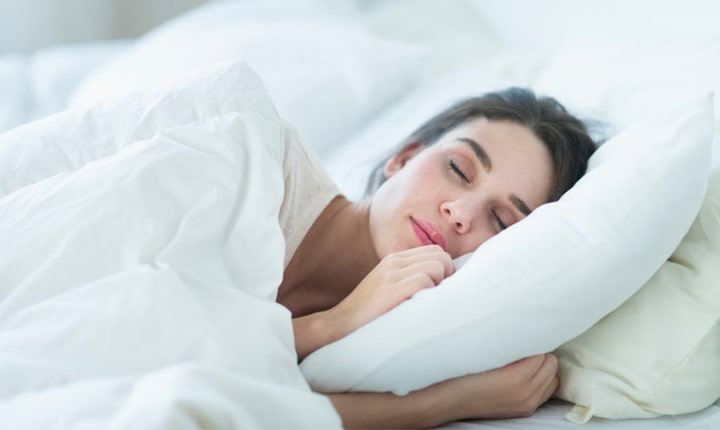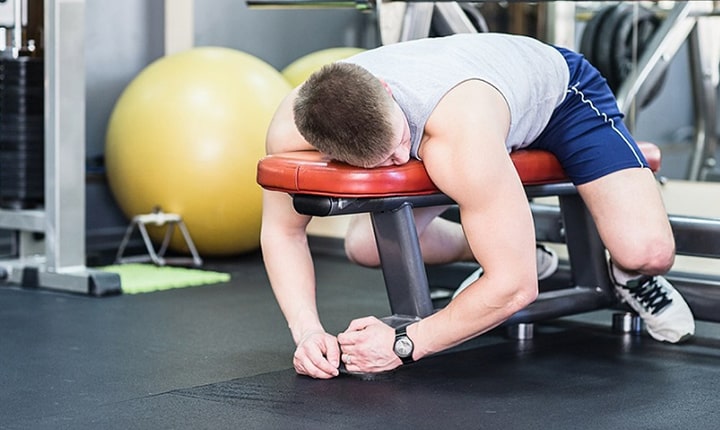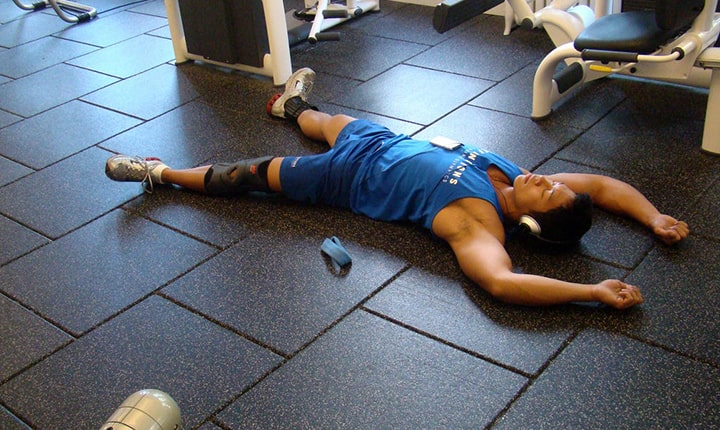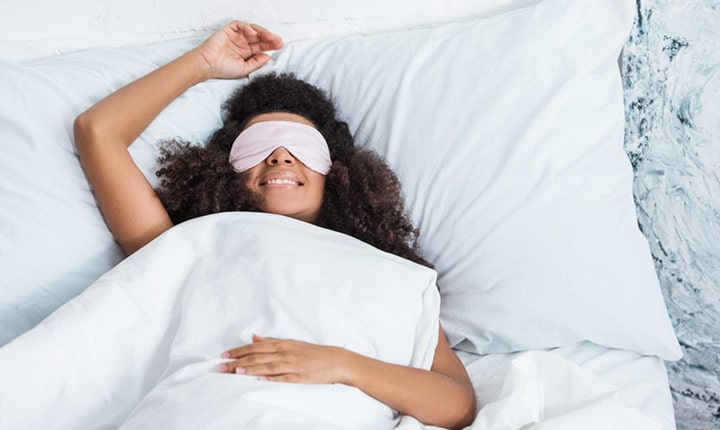Our Blog

Sleep After a Workout: Is It Good or Bad?

When it comes to figuring out whether you should sleep after a workout session or not, the answers may be extremely polarizing. Based on who you are talking to and on your own sleeping patterns and schedules, the answers may differ. Some people feel highly energized and get an adrenaline rush after working out while others immediately feel the necessity to hit the bed after working out. But, at the end of the day, the main concern is to find which one is healthy to follow, and we plan on finding exactly that today.
Today, we look at the reasons we get tired after working out and also the pros and cons of sleeping after a workout regime. So, follow through to find out what needs to be done.
Should You Sleep After a Workout?

When you perform a physical activity, it boosts your energy. Your blood flow and heart rate increases as a result of it. This can keep you awake. On the other end of the spectrum, it should be noted that physical activities like exercises can also make you extremely tried as they use a lot of your stamina and energy. This is why you might want to sleep after a workout.
The first thing that you need to learn is that it is completely natural to feel sleepy after working out. So, you don’t have to get concerned about it. This is especially true after having a long run or going through high-intensity interval training. Sometimes, feeling the immediate need for a sleep after a workout is a sign that you have pushed yourself too hard. However, exercises such as a leisurely walk won’t make you tired.
The degree at which you lose your energy will be dependent on multiple factors and they are all subjective. Some of the most crucial ones among them are as follows:
- The type of exercise you are performing
- Your fitness level
- The kind of food you are eating
- Your hydration level
- The duration of your exercise
- The intensity of your exercise
- The frequency of your exercise
- The amount of sleep you received the previous night
- Any underlying medical conditions
Why Does One Feel the Need to Sleep After a Workout?

You might feel sleepy after a workout due to the natural response of your body to the physical activity. The muscles of your body contract repeatedly when you perform a vigorous activity such as an exercise. Your muscles use Adenosine Triphosphate (ATP) to produce these contractions. ATP is essentially a molecule that is responsible for providing energy to your cells.
As you continue to workout, the levels of ATP gets depleted, which, in turn, decreases the ability of your muscles to function as energetically as they could before the workout. This leads to muscle fatigue, which is also known as peripheral fatigue. The Central Nervous System (CNS) of your body also plays a vital role here. When you are working out, your CNS sends signals to your muscles repetitively. The longer you workout, the less charged the sending of those signals will become.
Furthermore, physical activities increase various neurotransmitters, including serotonin and dopamine. The capacity of your CNS to activate your muscles decreases due to these changes, which ultimately results in central fatigue.
As such, you might feel the necessity to hit your bed immediately. So, as you see, the entire process is very natural. So, don’t get alarmed or freak out if you are finding yourself in the need to get sleep after a workout.
Advantages of Sleep After a Workout

Let us start with the positives. Sleeping after a workout can help you in the following ways:
Improves Sleep Debt
Adequate sleep helps in muscle recovery, and when you deprive yourself of sleep, it would hinder in muscle recovery. Not only that, but you don’t sleep, your cognitive function slows down and your immune system gets weakened. These may lead to poor athletic performances. So, we highly recommend you not to go through sleep deprivation.
Increases Mental Alertness
Sleep relaxes your mind and in the process increases mental alertness. You get a boost of mental energy every time you go to sleep. Since sleep helps take care of your tiredness, it makes you more spatially aware. Your brain thinks faster when you have received proper sleep.
Better Recovery of Muscles
A sleep after a workout will help in the recovery of your muscles. Your pituitary gland releases growth hormone when you sleep. This hormone is responsible for repairing and building tissues, which, in turn, helps in improving athletic performances and muscle growth. Sleep after a workout would help in reaping the most benefits out of a physical activity.
Decreases Physical Fatigue
As we stated earlier, after your workout, your muscles go through a stage of fatigue. By allowing your muscles to recover through proper sleep, you reduce this fatigue. This would also allow you to handle the other activities of the day in a better fashion.
Disadvantages of Sleep After a Workout

Alright, now too much of anything is not good. We told you the benefits of sleep after a workout. Now, it is time for you to learn the negative implications of the same. The disadvantages of sleep after a workout are as follows:
Increased Grogginess
If you take a really long nap after a workout, chances are high that you would enter the deep stages of sleep. When you enter those stages, you would end up feeling disoriented and groggy the moment you wake up. What is even worse is that this feeling (which is known as sleep inertia) can last up to half an hour.
Bad Quality of Sleep
When you perform a physical activity, there is an increase in both your body temperature and endorphins. These changes usually keep your body and brain awake. This is the sole purpose why many people avoid working out right before going to bed. Thus, even if you want to go to sleep, it would be physically difficult for your body to get rest. For some, it might take a long time for their body to relax and enter the sleep stage.
Disruptive Sleeping Pattern
Yes, we did tell you that napping reduces sleep debt. However, it can’t be ignored that napping here and then can negatively affect your night-time sleep, which is your primary rest stage for the day. You might experience difficulty in falling asleep at night. In addition, if you have a sleep disorder, napping would worsen your symptoms.
How Long Should You Sleep After a Workout?

If you really want to sleep after your workout session, then we recommend you to limit your nap to 20 minutes. This is because if you sleep for more than 20 minutes, you would enter deep sleep and wake up groggy with sleep inertia.
So, before you take your nap, set an alarm for 20 minutes. This will give you enough time to relax and unplug yourself. If you feel tired after an evening workout, then we recommend you to go to bed early. However, before you do so, make sure your body is well hydrated and is fed well with a proper healthy meal.
Healthy Sleeping Habits
Sleep is extremely important for your health and no matter how much effort you put in your workout sessions, you won’t be able to see the results if you don’t let your body rest through proper sleep. To help you get the same, we are listing some healthy sleeping habits for you:
- Stretching your muscles before sleeping can be extremely beneficial since it will make sure that you don’t experience muscle stiffness or fatigue when you wake up.
- Make sure to sleep in a cool room. The ideal temperature for your bedroom should be 60-67° F (15-19° C).
- If you have to take a nap, try to do it between 1:00-3:00 PM since this is usually the time your energy starts naturally dropping. If you sleep later than this time, you might find it difficult to fall asleep at night.
- Be sure to hydrate your body after working out and before going to bed and after going to bed.
- Avoid sleeping in a noisy place. Sometimes, white noise machine or even the sound of a fan and air-conditioner can help mask outside noise.
- Close the blinds and drop the curtains of your windows before sleeping. A dark room is recommended for a perfect sleep. Using blackout curtains can help if you want to sleep at daytime.
- Nothing can substitute night-time sleep. So, make sure your night-time sleep is your priority. The naps that you take during the day are just to relax your body.
Summary
As you have seen, you can sleep after a workout, but make sure you don’t do it for more than 20 minutes if it is daytime. If you are working out at evening, just wait for some time before hitting the bed. This would ensure that you won’t experience any muscle fatigue or grogginess when you wake up.
Feeling tired after a workout is natural. However, if you find yourself extremely sleepy after every workout session or repeatedly fall asleep without realizing it, then you might want to see a doctor. The same is true if you are unable to sleep even when you are tired or have difficulty in waking up from short naps.
Feel free to take the advice of a doctor or physical trainer to help understand your sleeping pattern. Napping would help you recover your muscles and boosting your energy. So, it’s okay to sleep but remember limiting it.







